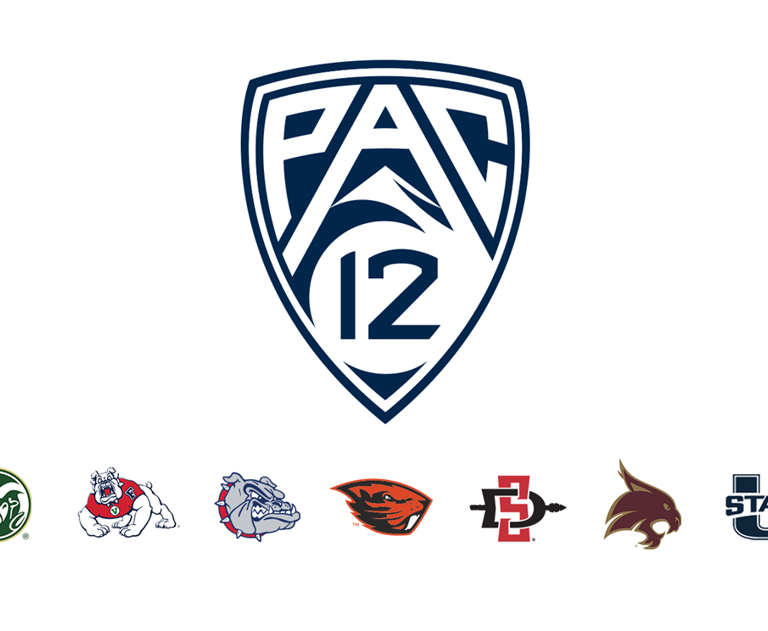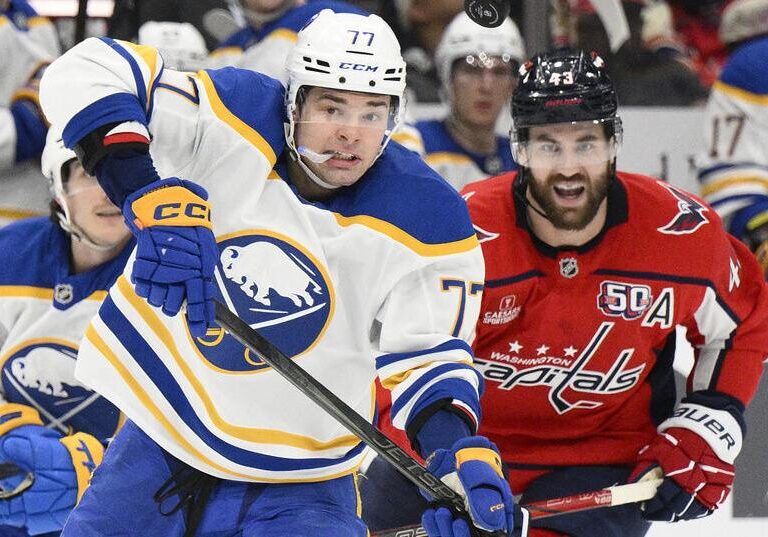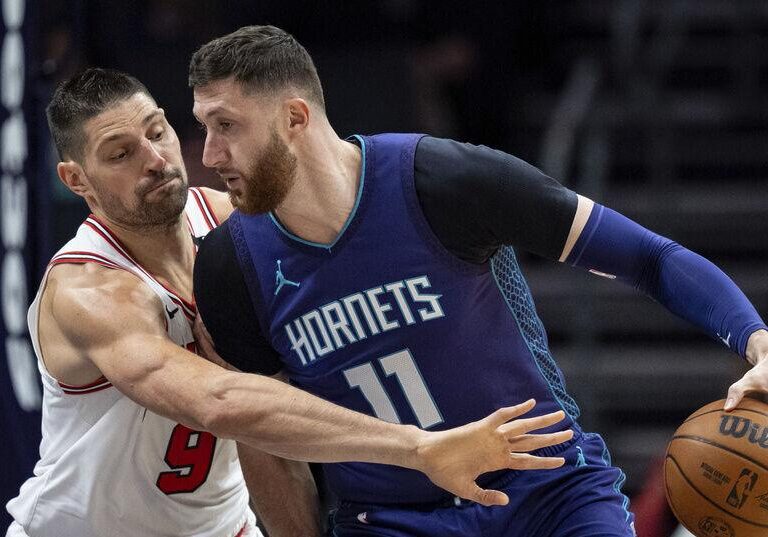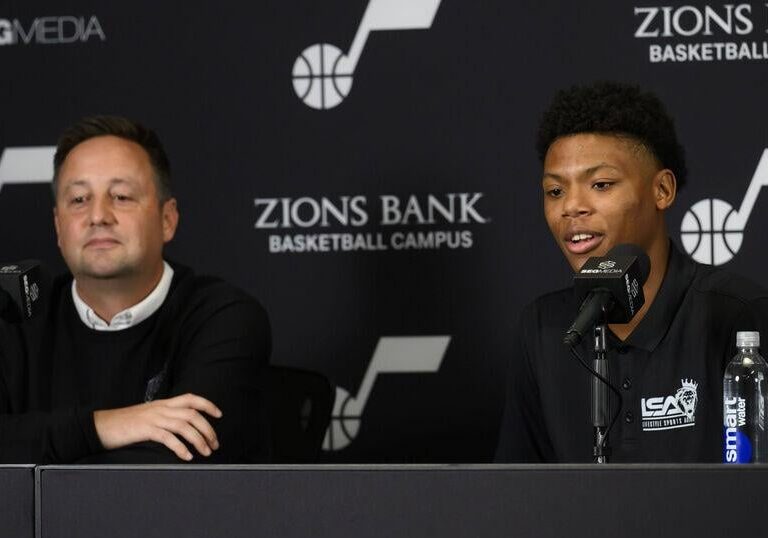Utah State quarterback Levi Williams (16) during the second half of an NCAA college football game, Saturday, Sept. 3, 2022, in Tuscaloosa, Ala. (AP Photo/Vasha Hunt)
During the fourth quarter of Utah State’s loss to Boise State, the Aggie coaching staff had to face what would become a great and terrible truth.
Levi Williams was going to have to start against New Mexico.
In the game that would decide if USU would become bowl eligible, the team’s third-string quarterback would be the one leading the offense since Utah State’s two other quarterbacks, starter Cooper Legas and part-time starter McCae Hillstead, were both injured during the game against the Broncos. As such, Williams was playing at quarterback for just the third time that season in the game against BSU.
Those two injuries to Legas and Hillstead made the decision for head coach (and QB coach) Blake Anderson.
“We knew that Coop’s shoulder was bad and that was the second time that McCae had gotten rolled up on the same ankle,” Anderson said. “And honestly just at this point — I think it’s not McCae’s fault — he’s just not himself. He’s had the concussion two ankles and it’s taken a toll on him. Felt very strongly that our best chance moving forward was to let a veteran, mature, grown up dude go out there and and lead us.”
Williams, a fifth-year junior, hadn’t started a single game for the Aggies in basically two full seasons. He’d appeared sporadically, a few minor appearances in 2022, a couple glimpses this year, and then emergency time in the final minutes against BSU. At no point was Williams the starter, often not even the primary backup.
For two years, Williams sat behind both Logan Bonner and Legas last year and then Legas and Hillstead this year. Williams was buried in the depth chart despite having more experience than several of the guys in front of him — experience that included a Potato Bowl MVP performance in which Williams, starting for Wyoming, ran for 200 yards a four touchdowns in addition to his 127 passing yards and singular passing TD.
Earlier this year when Legas was underperforming and Anderson was looking for a change at quarterback, despite being the listed backup quarterback all season, Williams was passed up for the true freshman, Hillstead.
In the wake of Williams’ five-touchdown performance against New Mexico, which led Utah State to victory, Anderson seemed to have second thoughts about the decision to pass over Williams.
“I’m an idiot. Should have played him earlier in the year,” Anderson said. “He and I have had great conversations throughout early in the year about why I chose to make the changes I did. And he was awesome (saying) ‘Coach, I completely understand it’ and never wavered. Just a great teammate.”
Since the Week 4 game against James Madison, Williams had found a home on the field, not at quarterback, but on special teams. He’s played nearly 70 snaps across four special teams units — punt return, punt coverage, kick return and kick coverage.
When Anderson finally went with Williams at his listed position, the third-year Aggie coach made sure to utilize the QB’s most dangerous weapon: his legs. Williams ran the ball a career-high 25 times against the Lobos, gaining 153 yards, the second-highest total of his career and most since the 2021 Potato Bowl.
“We knew if we went with him at any point in this offense that we were going to have to use his legs; that we couldn’t put all of the pressure on him to connect the dots (in the passing game),” Anderson said. “He has a cannon for an arm, but we’d struggle with just throwing and catching. We’d struggle with consistency or we’d have gone with him a long time ago.”
One of the Aggies biggest drives of the game, a 15-play, 90-yard drive, featured 41 rushing yards from Williams alone. Then, of course, there was the biggest play of the afternoon. The one in which Williams initially fumbled the snap, but recovered it and ran for the 13-yard walk-off touchdown.
“I just kind of took my eye off the ball for a second and kind of fumbled it to my right,” Williams said in his description of the play. “Then once I picked it up, I saw the angle that the (defensive end) had on me. So, I got a little bit of width. And then once I got outside of him, I realized there wasn’t anybody left. And those secondary guys don’t like to tackle a big guy like me. So I just ran as hard as I could for as long as I could, found the red end zone.”
Williams not only showed off his well-known rushing ability, but also defied the doubts Anderson has about his passing ability. Williams completed 16 of 27 passes for 198 yards and two touchdowns (he did have an interception but it came at the end of the first half on a deep throw).
On Utah State’s first two drives of the game, Williams completed 6 of 7 passes for an even 100 yards and a pair of touchdown passes to Jalen Royals. The second of those two TD tosses displayed that “cannon for an arm” as Williams found Royals on a deep pass for a 57-yard score.
“He threw the ball really, really well today,” Anderson said. “Let a couple get away, but that happens to anybody. Mainly made great decisions.”
Williams himself talked about his performance in a manner that lived up to the leadership Anderson praised the QB for having. He started off by saying “glory to God” and then bringing it all back to making the game about the team and not him.
“It’s an incredible moment, but this moment’s really not about me,” Williams said. “This is about the guys downstairs. It’s about the 100 guys in that locker room that come to work every single day and fight and grind and sweat and bleed every single day. We had a extremely hard schedule this year. Lots of adversity, offensively, defensively. And I play for them. I play for my creator and then I play for my teammates. So, this game’s not really about me, it’s about them.”
Given the heroics and injuries between Hillstead and Legas, it’s entirely possible Williams will be a feature in Utah State’s likely bowl appearance this December. And perhaps he’ll earn another bowl MVP, this time for the Aggies.







